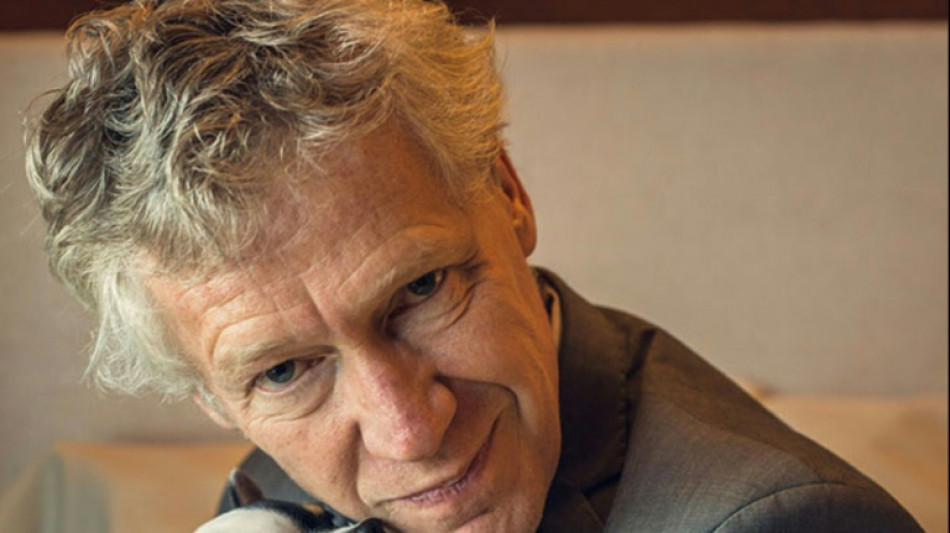
-
 US allows Nvidia to send advanced AI chips to China with restrictions
US allows Nvidia to send advanced AI chips to China with restrictions
-
Sinner in way as Alcaraz targets career Grand Slam in Australia

-
 Rahm, Dechambeau, Smith snub PGA Tour offer to stay with LIV
Rahm, Dechambeau, Smith snub PGA Tour offer to stay with LIV
-
K-pop heartthrobs BTS to begin world tour from April

-
 Boeing annual orders top Airbus for first time since 2018
Boeing annual orders top Airbus for first time since 2018
-
US to take three-quarter stake in Armenia corridor

-
 Semenyo an instant hit as Man City close on League Cup final
Semenyo an instant hit as Man City close on League Cup final
-
Trump warns of 'very strong action' if Iran hangs protesters

-
 Marseille put nine past sixth-tier Bayeux in French Cup
Marseille put nine past sixth-tier Bayeux in French Cup
-
US stocks retreat from records as oil prices jump

-
 Dortmund outclass Bremen to tighten grip on second spot
Dortmund outclass Bremen to tighten grip on second spot
-
Shiffrin reasserts slalom domination ahead of Olympics with Flachau win

-
 Fear vies with sorrow at funeral for Venezuelan political prisoner
Fear vies with sorrow at funeral for Venezuelan political prisoner
-
Pittsburgh Steelers coach Tomlin resigns after 19 years: club

-
 Russell eager to face Scotland team-mates when Bath play Edinburgh
Russell eager to face Scotland team-mates when Bath play Edinburgh
-
Undav scores again as Stuttgart sink Frankfurt to go third

-
 Fuming French farmers camp out in Paris despite government pledges
Fuming French farmers camp out in Paris despite government pledges
-
Man Utd appoint Carrick as manager to end of the season

-
 Russia strikes power plant, kills four in Ukraine barrage
Russia strikes power plant, kills four in Ukraine barrage
-
France's Le Pen says had 'no sense' of any offence as appeal trial opens

-
 JPMorgan Chase reports mixed results as Dimon defends Fed chief
JPMorgan Chase reports mixed results as Dimon defends Fed chief
-
Vingegaard targets first Giro while thirsting for third Tour title

-
 US pushes forward trade enclave over Armenia
US pushes forward trade enclave over Armenia
-
Alpine release reserve driver Doohan ahead of F1 season

-
 Toulouse's Ntamack out of crunch Champions Cup match against Sale
Toulouse's Ntamack out of crunch Champions Cup match against Sale
-
US takes aim at Muslim Brotherhood in Arab world

-
 Gloucester sign Springbok World Cup-winner Kleyn
Gloucester sign Springbok World Cup-winner Kleyn
-
Trump tells Iranians 'help on its way' as crackdown toll soars

-
 Iran threatens death penalty for 'rioters' as concern grows for protester
Iran threatens death penalty for 'rioters' as concern grows for protester
-
US ends protection for Somalis amid escalating migrant crackdown

-
 Oil prices surge following Trump's Iran tariff threat
Oil prices surge following Trump's Iran tariff threat
-
Fashion student, bodybuilder, footballer: the victims of Iran's crackdown

-
 Trump tells Iranians to 'keep protesting', says 'help on its way'
Trump tells Iranians to 'keep protesting', says 'help on its way'
-
Italian Olympians 'insulted' by torch relay snub

-
 Davos braces for Trump's 'America First' onslaught
Davos braces for Trump's 'America First' onslaught
-
How AI 'deepfakes' became Elon Musk's latest scandal

-
 Albania's waste-choked rivers worsen deadly floods
Albania's waste-choked rivers worsen deadly floods
-
Cancelo rejoins Barca on loan from Al-Hilal

-
 India hunts rampaging elephant that killed 20 people
India hunts rampaging elephant that killed 20 people
-
Nuuk, Copenhagen mull Greenland independence in Trump's shadow

-
 WHO says sugary drinks, alcohol getting cheaper, should be taxed more
WHO says sugary drinks, alcohol getting cheaper, should be taxed more
-
Arteta urges Arsenal to learn from League Cup pain ahead of Chelsea semi

-
 Davos elite, devotees of multilateralism, brace for Trump
Davos elite, devotees of multilateralism, brace for Trump
-
Spanish star Julio Iglesias accused of sexual assault by two ex-employees

-
 Trump's Iran tariff threat pushes oil price higher
Trump's Iran tariff threat pushes oil price higher
-
US consumer inflation holds steady as affordability worries linger

-
 Iran to press capital crime charges for 'rioters': prosecutors
Iran to press capital crime charges for 'rioters': prosecutors
-
Denmark, Greenland set for high-stake talks at White House

-
 Iranian goes on trial in France ahead of possible prisoner swap
Iranian goes on trial in France ahead of possible prisoner swap
-
Cold winter and AI boom pushed US emissions increase in 2025


Frenchman rewarded for lifetime of research into narcolepsy
Emmanuel Mignot is one of the world's leading experts on narcolepsy, a sleep disorder that he finds both "strange" and "fascinating."
The French-born Mignot has dedicated his life to studying the causes of narcolepsy and shedding light on one of the great biological mysteries -- sleep.
His discovery of the genetic and molecular causes of the disorder led to his receiving a prestigious Breakthrough Prize on Thursday along with Japan's Masashi Yanagisawa, who made related findings around the same time.
Because of their discoveries, new treatments for narcolepsy -- which causes people to suddenly fall asleep -- and other sleep disorders are being developed.
About one in every 2,000 people suffers from narcolepsy. Some may experience catalepsy -- a sudden trance-like state.
"I am quite proud because what I have discovered is making an enormous difference for my patients," Mignot said in a telephone interview with AFP. "It's the best reward that one could receive."
The 63-year-old Mignot is a sleep researcher at Stanford University in California.
Thirty years ago, when he was a medical student, Mignot fulfilled his military service requirements in France by coming to Stanford to study a French-made drug that was being used to treat narcolepsy.
At the time, he said, the disease was "virtually unknown" and no one was actively studying it.
He became "completely fascinated."
"I told myself it's incredible, this disease, people fall asleep all the time, we have no idea why, and if we could discover the cause we might understand something new about sleep."
Stanford was already home to a renowned sleep center and its laboratory housed narcoleptic dogs, which Mignot began studying in an effort to find a genetic cause of the disease.
Genome sequencing was very primitive at that time and "everybody told me I was crazy," said Mignot, who currently has an adopted narcoleptic dog called Watson.
"I thought it would take a few years and it ended up taking 10."
In 1999, Mignot found a mutation in the genome of narcoleptic dogs. It was located on membrane receptors in the brain that respond to molecules outside the cell, similar to a lock and a key.
- 'Remake a key' -
The Japanese scientist Yanagisawa, meanwhile, had been studying orphan receptors -- receptors of unknown function -- in mice.
He discovered that a molecule that he named orexin binds to the same receptor Mignot detected as abnormal in dogs.
Mice who were deprived of orexin developed narcolepsy.
Mignot immediately began research on human subjects and found that orexin levels in the brain of narcolepsy patients were zero.
Normally, the molecule is produced in great quantities during the day, especially in the evening, allowing one to fight fatigue.
"You don't make a discovery like this twice in your life," Mignot said. "We found the cause of a disease.
"The advantage, is that we can remake a key," he said, referring to orexin.
For the moment, most patients are treated with a combination of powerful sedatives to help them sleep more soundly and amphetamines to keep them awake during the day.
Mignot said tests using a drug that mimics orexin have been "really miraculous."
Patients are fully awake and "transformed."
The challenge is to develop the right dose to be delivered at the right time.
Several companies, including Takeda of Japan, are working on it, and drugs could be authorized in the next few years.
They could be applied to other patients -- people suffering from depression, for example -- who have difficulty waking up, or to those in a coma.
Mignot meanwhile is studying whether narcolepsy may be caused by a flu virus.
The body's immune system may be confusing a flu virus with the cells that produce orexin and T-cells that fight infection are attacking them as a result.
"I've become interested in how the immune system works in the brain," a field he said is "beginning to explode."
As for sleep, Mignot remains fascinated by it even if he has uncovered one of the great mysteries.
"What is it that sleep does that it is so important that we have to do it every day?" he asked. "It's true that we still don't know."
R.Shaban--SF-PST



